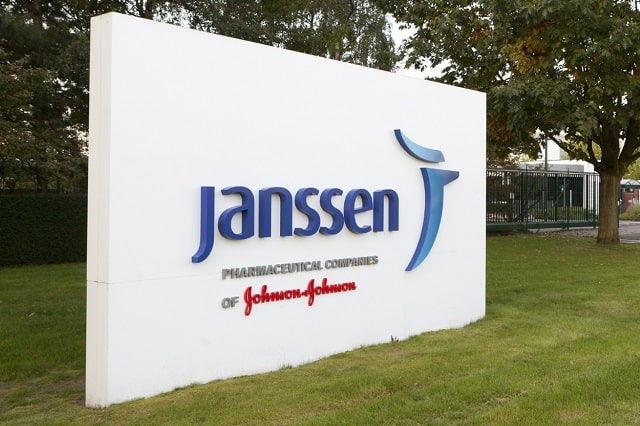
Janssen, the pharmaceutical division of Johnson & Johnson, has revealed positive interim results from a phase 1 study of its investigational bispecific antibody amivantamab in non-small cell lung cancer (NSCLC) patients.
Amivantamab is being investigated as a treatment for NSCLC patients with epidermal growth factor receptor (EGFR) exon 19 deletions or L858R mutations, which account for 8% of all EGFR mutations in NSCLC.
Janssen assessed the investigational drug in combination with EGFR tyrosine kinase inhibitor (TKI) lazertinib, which the company licensed from South Korean pharma firm Yuhan in 2018.
The CHRYSALIS study investigators assessed the efficacy of the combination treatment using overall response rate (ORR) markers, as well as clinical benefit rate, duration of response and the safety profile of amivantamab plus lazertinib in 91 patients.
The results, presented at the 2020 European Society for Medical Oncology (ESMO) virtual congress, showed promise in this patient population, with patients in the treatment-naïve group achieving a 100% ORR.
In a group of 45 patients who had relapsed following treatment with AstraZeneca’s Tagrisso (osimertinib), Janssen’s combination treatment produced a 36% ORR, with one complete response and 15 partial response, representing a clinical benefit rate of 60%.
Investigators also determined the optimal dose of the combination therapy in this study by giving 26 patients escalating doses of both treatments. The recommended dose is now being studied in a phase 2 as a treatment for patients whose cancer worsened after receiving a regimen of Tagrisso plus chemotherapy.
EGFR-mutated NSCLC often develops resistance to EGFR-targeting drugs like Tagrisso over time, highlighting the need for new therapies designed to improve outcomes for patients whose options are otherwise limited.
Amivantamab plus lazertinib could represent a potential option for NSCLC patients with EGFR mutations, with the promising results supporting further clinical testing – including a planned phase 3 study of the combination therapy in previously untreated advanced EGFR-mutated NSCLC.
“Lung cancer is the biggest cause of cancer death in Europe and has one of the lowest five-year survival rates for cancer patients,” said Joaquín Casariego, therapeutic area lead, oncology for Europe, Middle East and Africa at Janssen.
“At Janssen, we are committed to developing innovative targeted therapies that address the unmet needs for specific types of lung cancer, such as those with EGFR-mutated non-small cell lung cancer,” he added.




